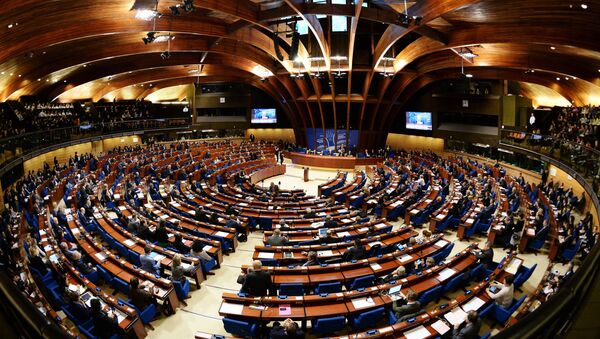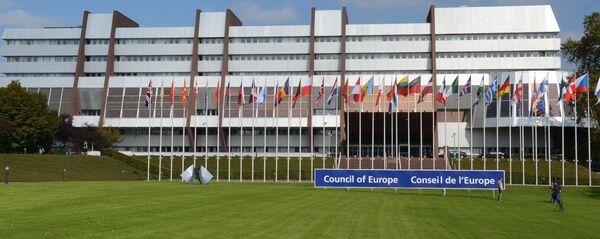"Russia's decision to suspend the contribution to the Council of Europe in 2017 is an expression of deep concern over the threat of expansion of the crisis within the Council of Europe due to a confrontational policy of several members of the Parliamentary Assembly. Russia calls on all the responsible members of governments and parliaments, on political parties, civil society of the member states of the Council of Europe to prevent ‘spilling’ of the crisis from the Assembly into other bodies of the Council of Europe," the statement released by the ministry said.
Moscow is concerned over frequent expressions of "the language of hatred and hostility" and demonstrative neglect of the norms of supremacy of law and democracy in PACE, the statement added, stressing that it is necessary to avoid the situation when the governments of the member states could "become hostage to fake stereotypes" and confrontation goals set by the Assembly.
In 2014 and 2015, PACE approved resolutions depriving the Russian delegation of the right to vote at the assembly’s sessions, as well as the right to participate in the work of its three key bodies: the Bureau, the Presidential Committee and the Standing Committee over Crimea's secession to Russia. Following the resolutions, Russia decided to leave PACE in late 2015, and did not review its credentials ahead of the Assembly’s 2016 and 2017 winter sessions, stressing that it will only return to PACE after full restoration of its delegates' voting rights.
On June 30, Russian Foreign Minister Sergey Lavrov informed Secretary General of the Council of Europe Thorbjorn Jagland of Moscow's decision to suspend the country's 2017 contribution to the Council of Europe.





